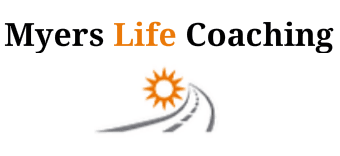Do you want commitment but feel stuck in a causal relationship!

Do you want commitment but feel stuck in a causal relationship. This article provides some tools to further evaluate where your partner stands in the relationship. If you want more, fight for more! Are you stuck in a casual relationship with a partner who seems uninterested in a deeper commitment? Do you feel like a friend with benefits? Are you in a long term relationship that is riddled with mistrust and uncertainty? It can be difficult to understand why a lover is noncommittal or why these commitment issues seem to arise time after time. Take the quiz and download our free guide! The tools will help you define commitment in a relationship. The following represents the four levels of commitment you may find yourself in.
Level 1 Commitment.
- Maintaining healthy relationships takes some work. What is a committed relationship? In a committed relationship there is a healthy level of trust, respect, communication, safety, equality and support. A commitment requires two people sharing and investing in each other. Both parties invest and share in the relationship. This person takes care of your needs and takes care of their own needs too. Their caring contribution for you helps increase their feelings of love, along with improving their gratitude for your efforts. Ultimately, when both parties truly need each other in a complementary way, invest in each other’s well-being, and de-prioritize alternatives, happiness and relationship commitment is more likely to result.
Level 2 On Your Way To commitment.
- If you are noticing a couple of things in your relationship that just does not feel right, it is time to self-reflect. This may not necessarily mean that things are doomed. It could possible be that you both need more time to learn each other. It’s still a good idea to keep an eye out and make sure there isn’t an unhealthy pattern developing. The best thing to do is to talk to your partner and let them know what you like and don’t like. Encourage them to do the same. Remember, communication is always important when building a successful relationship.
Level 3 Not Quite Ready.
- You are definitely seeing warning signs and may be setting yourself up for an unhealthy relationship. If you are feeling like you are not a priority– consider the pros and cons of your relationship. If victim blaming, isolation, and broken promises are a part of your “situation”, you are definitely settling for less. It is time to tap into that spiritual side and evaluate if further investment in the relationship is warranted.
Level 4 Red Flag Zone! This is not Commitment!
- It sounds like you may be seeing some red flags. If you find yourself in this category there probably have been signs that the relationship is over or never has truly gotten off the ground. This person is not fully committed to you. If commitment is what you want, it is time to re-evaluate things. There is something about you that provides a benefit to this person. However, if they are not willing to give of themselves, REMEMBER, you are worth the time and effort. Specifically, it is important to find a partner who is compatible, who is not overly-focused on alternatives to a relationship, and can come to depend on what you have to offer. We are all imperfectly perfect. Something that starts small can grow much worse over time. No relationship is perfect — it takes work! But in a healthy relationship you won’t find neglectful behaviors.
I challenge you to determine the level of commitment of both parties in the relationship.Take the quiz to find out where you fall! If someone is showing signs that they are not ready to commit, I then challenge you to determine if the relationship is worth the investment. When you commit yourself to one person, you are committing your well being, future, hopes, dreams, and happiness. Is this person worth the investment? Compare your relationship to a job? Would you quit your job if you worked for a company that treated you like your partner?
Beautiful Benefits Of Being Committed In Your Relationship
When you are in a happy and committed relationship, you are in it for better or for worse. With commitment comes deeper intimacy and passion. Even if the entire world seems to be against you for some reason, you know you have someone waiting back at home who believes in you and will help you through your most difficult times! When you know your personal life is a settled and a balanced one, you are more stress free and energetic. That gives you a positive energy to feel more satisfied with life.
How do I encourage commitment?
A theory of relationship commitment by Carl Rusbult called Interdependency Theory (see Rusbult & Buunk, 1993) builds off of earlier work on Social Exchange Theory. This theory makes the claim that relationships are an exchange of costs and benefits between partner. Interdependence Theory shows that individuals commit to a partner to the extent that they are dependent on that partner. This dependence is a result of a few factors:
- Satisfaction. The individual receives many benefits, with few costs from the partner.
- Alternatives. The individual cannot get their needs met better elsewhere.
- Investment. The individual has a number of important resources devoted to the partner.
So in conclusion if you want to encourage commitment, he/she must receive benefits at minimal cost, cannot get their needs better met elsewhere and have resources devoted and allotted to you. Which area can you work on to take your relationship from casual to committed?
If you want to invest in what you have, the time is now, take action! You don’t have to deal with this alone. We can help. Contact us for additional resources and support. www.myerslifecoachingllc.com




Leave a Reply
Want to join the discussion?Feel free to contribute!